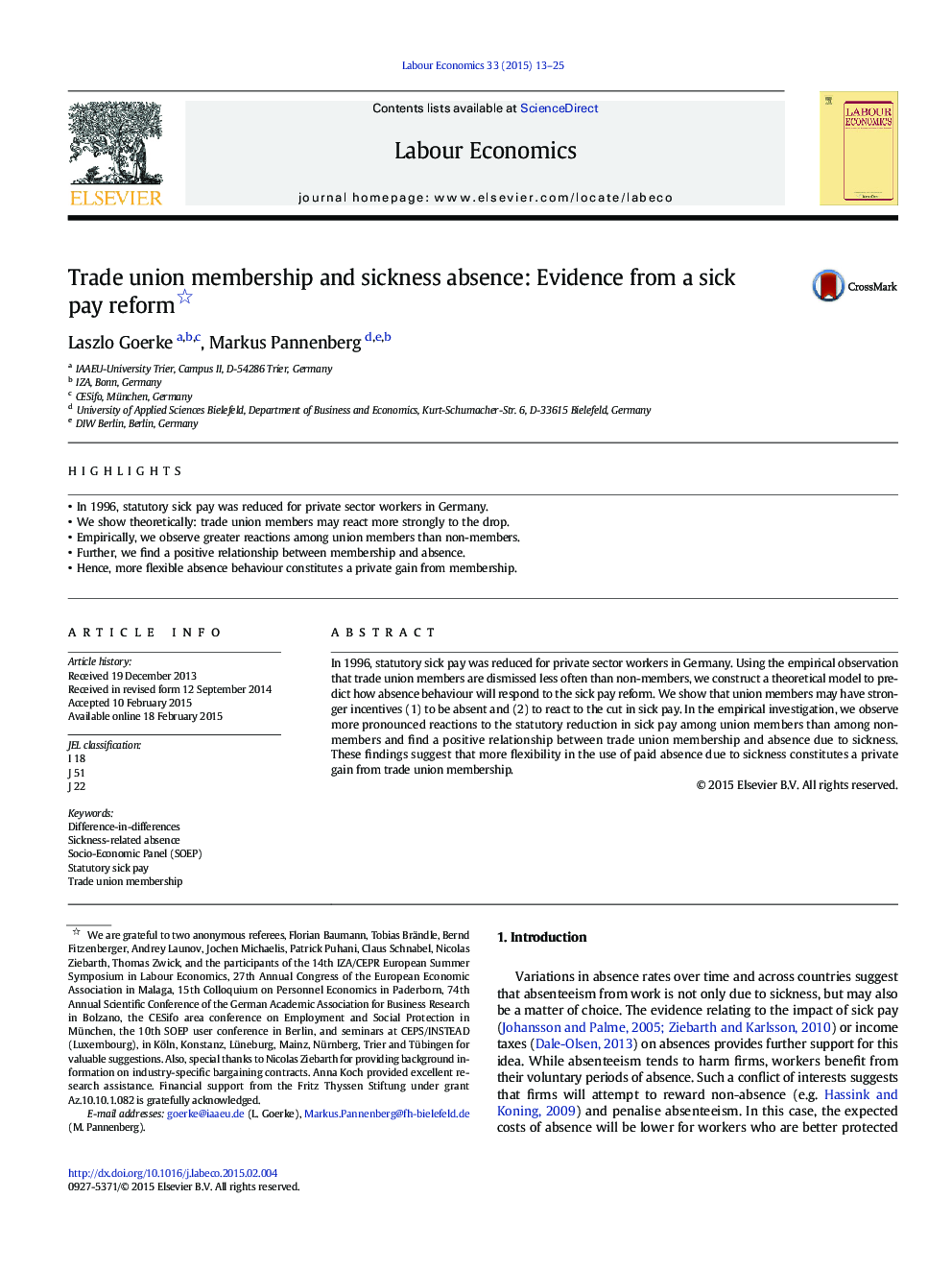| Article ID | Journal | Published Year | Pages | File Type |
|---|---|---|---|---|
| 7371834 | Labour Economics | 2015 | 13 Pages |
Abstract
In 1996, statutory sick pay was reduced for private sector workers in Germany. Using the empirical observation that trade union members are dismissed less often than non-members, we construct a theoretical model to predict how absence behaviour will respond to the sick pay reform. We show that union members may have stronger incentives (1) to be absent and (2) to react to the cut in sick pay. In the empirical investigation, we observe more pronounced reactions to the statutory reduction in sick pay among union members than among non-members and find a positive relationship between trade union membership and absence due to sickness. These findings suggest that more flexibility in the use of paid absence due to sickness constitutes a private gain from trade union membership.
Keywords
Related Topics
Social Sciences and Humanities
Economics, Econometrics and Finance
Economics and Econometrics
Authors
Laszlo Goerke, Markus Pannenberg,
